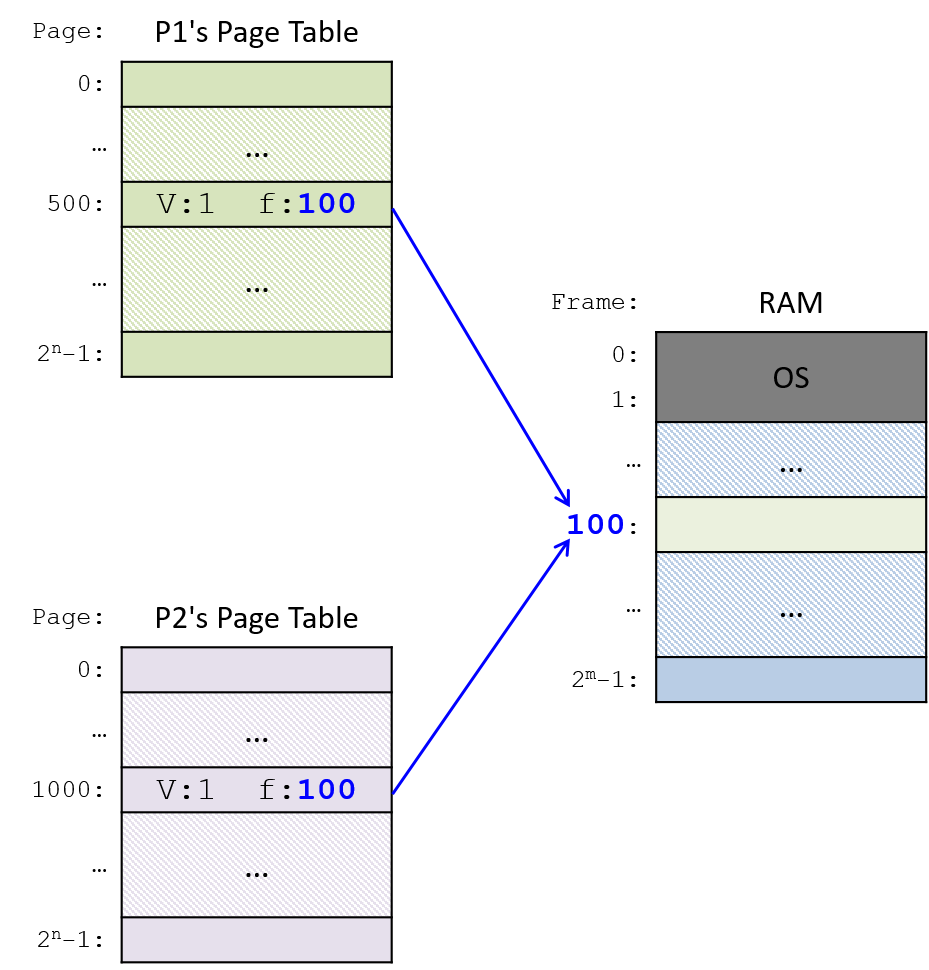13.4.3. Shared Memory
Message passing using sockets is useful for bidirectional communication between processes running on the same machine and between processes running on different machines. However, when two processes are running on the same machine, they can take advantage of shared system resources to communicate more efficiently than by using message passing.
For example, an operating system can support interprocess communication by allowing processes to share all or part of their virtual address spaces. One process can read and write values to the shared portion of its address space to communicate with other processes sharing the same memory region.
One way that the OS can implement partial address space sharing is by setting entries in the page tables of two or more processes to map to the same physical frames. Figure 1 illustrates an example mapping. To communicate, one process writes a value to an address on a shared page, and another process subsequently reads the value.

If the OS supports partial shared memory, then it implements an interface
to the programmer for creating and attaching to shared pages (or shared
regions/segments) of memory. In Unix systems, the system call shmget
creates or attaches to a shared memory segment. Each shared
memory segment corresponds to a contiguous set of virtual addresses whose
physical mappings are shared with other processes attaching to the same
shared memory segment.
Operating systems also typically support sharing a single, full virtual address space. A thread is the OS abstraction of an execution control flow. A process has a single thread of execution control flow in a single virtual address space. A multithreaded process has multiple concurrent threads of execution control flow in a single, shared virtual address space — all threads share the full virtual address space of their containing process.
Threads can easily share execution state by reading and writing to shared locations in their common address space. For example, if one thread changes the value of a global variable, all other threads see the result of that change.
On a multiprocessor systems (SMP or multicore), individual threads of a multithreaded process can be scheduled to run simultaneously, in parallel, on the multiple cores. In the Shared Memory Chapter, we discuss threads and parallel multi-threaded programming in more detail.